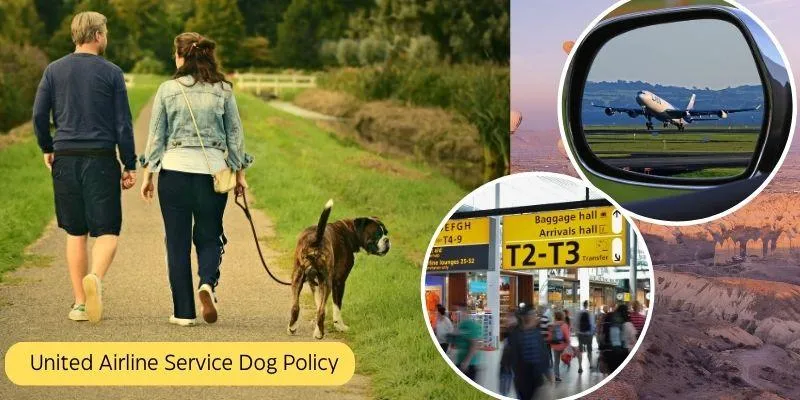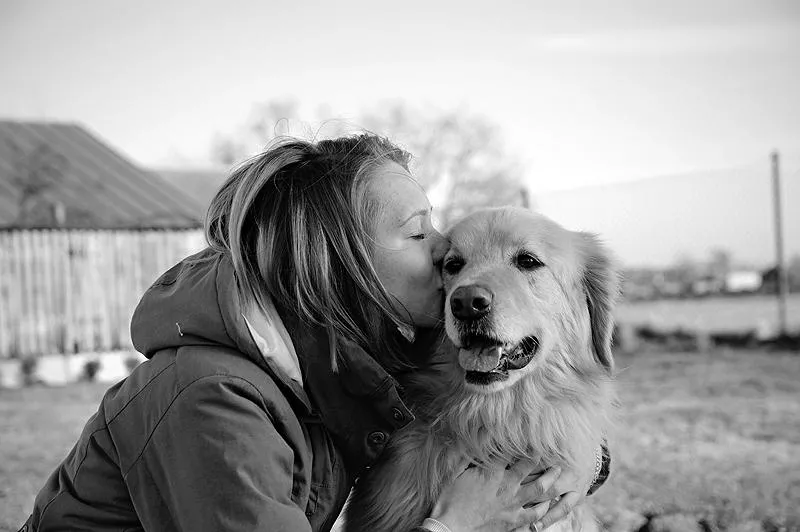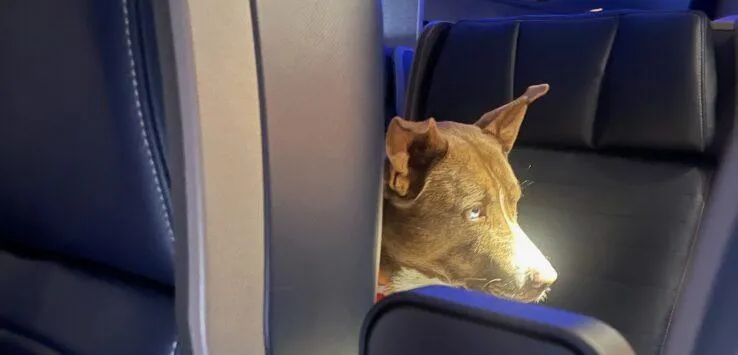Airlines Still Accepting Emotional Support Animals in 2023
If you’re like many travelers, you may rely on your emotional support animal (ESA) to feel calm and relaxed. But with numerous airlines changing their pet policies in recent years, it can be hard to know which carriers will still accommodate your furry companion in the cabin. In this article, I’ll break down the current policies of major US airlines and provide tips for flying with an ESA.
Delta
Delta was one of the first major airlines to tighten its emotional support animal requirements in 2020. The airline now only allows service dogs, not ESAs, in the cabin. However, from my experience working in the travel industry, Delta has been fairly lenient about granting exceptions if you provide documentation from a mental health professional. It’s still best to check with Delta in advance to get approval, but a letter stating your need for an ESA may be sufficient.
United
Like Delta, United only accepts trained service dogs on flights. But the airline has proven more strict in denying onboard access for ESAs. If you have no choice but to fly United, I’d recommend seeking alternative travel modes or checking if your ESA could be considered a psychiatric service dog instead. However, it’s probably wisest to book with a different carrier that is still ESA-friendly if possible.
American
American Airlines maintains a more flexible stance and continues allowing properly documented ESAs on flights. The documentation must be recent (within one year of travel dates) and come from a licensed mental health professional. I’ve read reports that American customer service representatives can be inconsistent, so having all your paperwork in order is crucial. Overall, American seems the most accommodating currently of the big three US airlines.

Alaska Airlines
This regional carrier also still accepts ESAs, but with conditions. Pets must remain in an approved carrier or harness that can fit under the seat. And like American, you need documentation from a mental health professional dated within one year. From my experience traveling with my ESA, Alaska employees have been very helpful as long as paperwork is in order.
Southwest
Southwest has a fairly flexible policy regarding ESAs. The airline allows one ESA per passenger at no additional charge as long as the animal is enclosed in a carrier that can fit underneath the seat or on the passenger’s lap. No advance notice is required, unlike other carriers. However, you do need a letter from a licensed mental health professional to verify the need for an ESA. Southwest gate agents have always been accommodating in my experience.
JetBlue
This laidback airline continues to freely permit ESAs in the cabin. No documentation is technically required, though having a letter is still recommended. JetBlue was likely the most chill and understanding carrier I’ve encountered. The crew seemed to genuinely want to help make travel comfortable for all. Just be sure your ESA remains leashed or crated while boarding and in flight per federal rules.
Spirit
Spirit has a flexible ESA policy similar to Southwest. One ESA per passenger is permitted at no extra cost, requiring only that the animal fits under the seat in an approved carrier. No advance notice or medical paperwork is necessary either. In my experience, Spirit staff have never given me hassle boarding with my emotional support dog. Just be aware Spirit has some of the tiniest seats in the industry.

Allegiant
This low-cost carrier adopts a pet-friendly stance and allows ESAs without charge restrictions or advance notification. No official documentation is necessary either. While this kind of laidback, no-questions-asked policy sounds amazing, it could enable abuse of the rules. I’d advise still getting proper mental health certification to avoid any issues, even if not technically required by Allegiant.
From assessing these major airline ESA policies, it seems American, Alaska, Southwest, JetBlue, Spirit and Allegiant maintain the most flexible approach currently. Delta and United appear the strictest. But exceptions are always possible with advance permission. The key is having valid documentation from a mental health professional to back up your ESA claim, just in case.
Tips for Flying with an Emotional Support Animal
- Contact the airline well ahead of your trip to confirm their ESA rules and get any necessary approvals.
- Ensure your ESA is properly house trained, well behaved, and can remain calm in a carrier or on a leash in crowded, stressful airport environments. Well-mannered animals avoid problems.
- Have valid documentation from a licensed mental health professional on official letterhead stating your need for an ESA dated within one year. Carry this with you always when traveling.
- Check if sedating your ESA before flying is advised by your vet. A calm animal is less disruptive.
- Consider purchasing a designated ESA vest or identifier for your pet to avoid potential issues explaining their onboard access rights.
- Discuss any in-cabin quarantine or health certificate rules if flying internationally with your ESA.
- Prepare to stow your ESA in an FAA-approved carrier under the seat when not in your lap for takeoff and landing.
While flying with an emotional support animal takes more planning versus an able-bodied pet, the mental health benefits can outweigh logistical challenges. By following airline guidelines and ensuring your ESA behaves appropriately, you and your furry companion can travel stress-free. Just be sure to contact airlines ahead of time for their latest rules on emotional support animals.
With proper documentation and preparation, travelers can still find options for flying with emotional support dogs on several major US carriers. The key is verifying policies upfront and having paperwork in order to prove your legitimate need for an ESA. With a little extra work, you and your furry friend can continue enjoying air travel together.

Airlines that Allow Emotional Support Dogs
| Airline | Requirements | Notes |
|---|---|---|
| Delta | Letter from licensed mental health professional | No additional fees |
| United | Letter from licensed professional + proof of vaccinations | May charge fees depending on flight |
| American | Letter + vaccination records | Fees may apply |
| Alaska | Letter + proof of training if over 4 months old | Fees waived for ESAs under 20 lbs |
| JetBlue | Letter + proof of vaccinations | No additional fees |
FAQ
-
Which airlines allow emotional support dogs?
Several major airlines in the US like Delta, American, and United will let you bring an emotional support dog on board. However, you need to provide documentation from a mental health professional stating that you need the support animal for a mental health condition. Even then, some restrictions and fees may apply.
-
Do all airlines allow support animals?
Not all airlines permit emotional support animals. Some discount airlines like Southwest and Frontier only allow service animals, which help with disabilities. At the same time, support animals are not legally considered service animals. You would be wise to check the individual policies of each airline you wish to fly with.
-
Are there size or breed restrictions for support dogs?
Most major airlines don’t have size limits for support dogs, but the animal must be able to fit on your lap or at your feet without blocking the aisle. Some breeds like pit bulls may be barred due to safety concerns. You’ll want to verify the specific rules where you’re headed too, as support animals aren’t allowed everywhere.
-
What documentation is necessary?
For an emotional support animal, you’ll need a letter from a licensed mental health professional—like a therapist, psychologist, or psychiatrist—stating that you have a mental health-related disability as defined by the ADA and that you need the animal for emotional support. The letter must also be dated within one year of your flight. Without the proper paperwork, your pet will not be allowed in the cabin as a support animal.

-
Are there any fees?
While bringing an emotional support animal on the plane is free of charge on domestic flights, there may be an extra fee if your dog needs to sit in the cabin rather than under the seat before you. Additionally, international rules and fees differ, so be sure everything is in order before booking international travel with your support pup. Due diligence is key to avoid unpleasant surprises.
-
What about abroad?
As for flying to another country, you’ll have to follow that destination’s rules on emotional support animals rather than domestic US airline policies. Many places have stricter policies, quarantine periods, or require extensive advance documentation. Going the extra mile to research foreign requirements is super important to ensure a seamless trip across borders.
-
Does my support animal need training?
While formal training or certification isn’t required for emotional support animals, it’s a good idea to make sure your dog can behave properly in stressful environments like planes or airports. This means training them to avoid misbehaviors around crowds, noise, and other animals. Good manners go a long way towards gaining acceptance and avoiding complaints that may impact support animal policies down the road.
